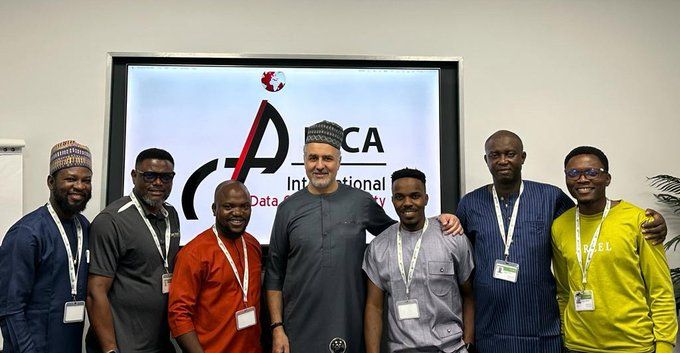
15 Feb 2024
Nigeria Faces Large-Scale Challenges, Poised to Make Large-Scale Impact
A report circulating around West Africa notes the Nigerian government's intention to end electricity subsidies. The government has said it will need US$2 billion for the subsidy this year, compared to $450 million budgeted for it. As possible mitigation, the government will also now allow Nigeria's 36 states to generate power independently for the first time.
Fuel subsidies will also be ending, according to another report making the rounds.
The reports illuminate this large country's ongoing battle to deliver key services to the people who live there, and develop its economy to something closer to its potential.
Nigeria's Under-Developed Electricity Grid
As things stand, Nigeria's electricity grids deliver only 2% of the per-person electricity of fully developed economies. Even among the Least Developed Countries (LDCs) of the world, a commonly used term used by economists, Nigeria trails several other nations in the strength of its electricity grid.
The Nigerian government has pointed to several reasons for “the constant collapse of the power grid,” according to the first report cited above, saying it's “caused by the shortage of gas, aging machines in the grid value chain, low capacity to evacuate generated power, and destruction of power stations in some parts of the North-East geopolitical zone of the country.”
IDCA Research Confirms the Situation
The IDCA Digital Readiness Index has found similar concerns in analyzing Nigeria. The country scores below the world average overall and in all four broad categories the Index covers: Economy, Environment, Social, and Governance.
Nigeria does produce about 25% of its electricity from renewable resources, at the world average, comparable with the percentage in the US, and one of two big metrics that affect its Environmental score. But its economic efficiency in producing emissions, the other big Environmental metric, trails at least 20 other African nations, and is half that of the US.
Nigeria has edged ahead of South Africa as having the continent's largest overall economy, now approaching $400 billion per year. But it has achieved this mark with four times as many people as South Africa – its per-person income of less than $3,000 per year has declined a dramatic 28% over the past decade as its currency has consistently lost value.
Nigeria Remains Potentially Consequential
In the midst of much dire news, Nigeria remains one of the potentially most consequential nations in the world by dint of its size.
Anchored by two large seaports in the Lagos area and several others along its coast, Nigeria encompasses a land area larger than Texas and Oklahoma combined (or almost as large as France and Spain combined, for European readers).
Nigeria's population of 230 million people is the sixth-largest in the world, and is almost 70% that of the third-largest United States. At current population growth rates, Nigeria will in fact surpass the US in population in 2036, when each nation would have more than 400 million people.
Nigeria in the Impact Zone
Nigeria's standing within the Digital Readiness Index places it in the Impact Zone, those nations that could benefit the most (and most quickly) from aggressive development of its Digital Infrastructure and an economy centered around it. Electricity must come first, though, and the Nigerian government has stated that “it will not award any new (electricity project) contracts until all projects it has (already) awarded are completed.”
IDCA data shows that Nigeria needs to bring more than 50 new gigawatts of power online – an investment of more than $100 billion, or more than 25% of its annual economy – just to bring its grid up to 25% of developed-world levels.
So It's Time to Make an Impact
Nigeria is a nation rich in culture and human resources. It has a new government headed by President Bola Ahmed Tinubu. Within that government, Nigeria has a tech-focused strategy led by several agencies and a strategic blueprint for 2023-2027 that aims to create 3 million technical jobs in the country while focusing on infrastructure, education, government policy, innovation and investment.
Within this strategy, IDCA recently conducted a training and certification program in Lagos that was focused Digital Infrastructure. Of all the nations in the Digital Readiness Index Impact Zone, Nigeria is the place where the most impact can be made.
Follow us on social media:


.d57b427b.png&w=3840&q=75)

















